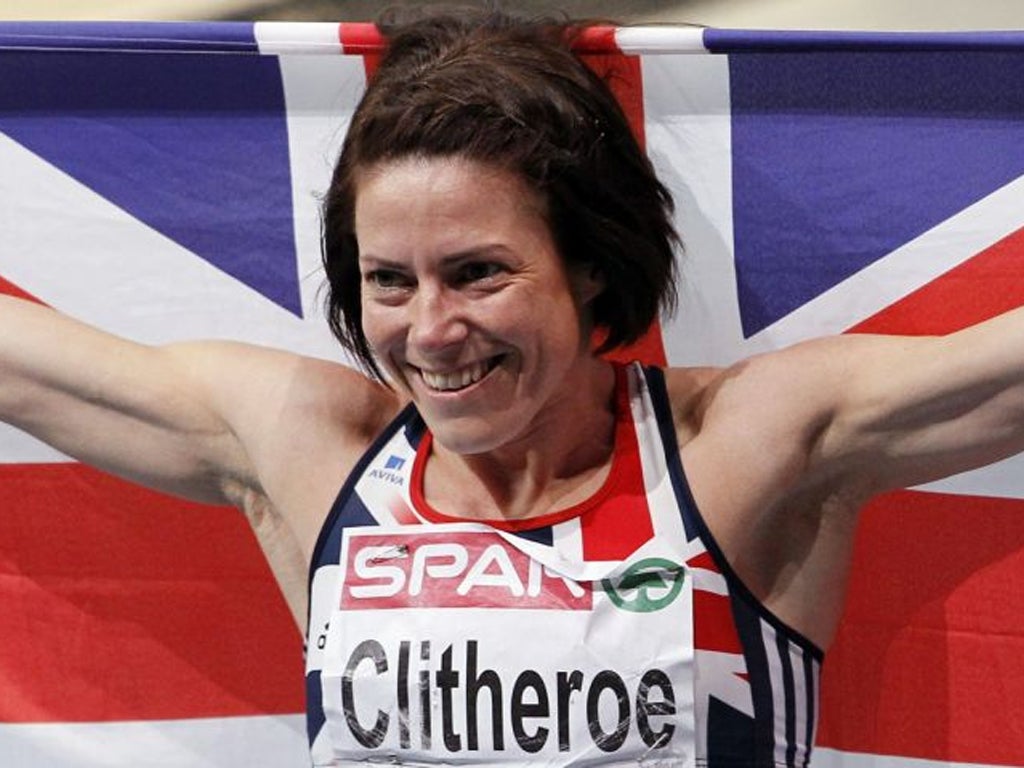Up to 1,800 Olympic hopefuls lose funding
Hundreds of British sportsmen and women are forced to take extra jobs to pay for training costs in run-up to London Games

Your support helps us to tell the story
From reproductive rights to climate change to Big Tech, The Independent is on the ground when the story is developing. Whether it's investigating the financials of Elon Musk's pro-Trump PAC or producing our latest documentary, 'The A Word', which shines a light on the American women fighting for reproductive rights, we know how important it is to parse out the facts from the messaging.
At such a critical moment in US history, we need reporters on the ground. Your donation allows us to keep sending journalists to speak to both sides of the story.
The Independent is trusted by Americans across the entire political spectrum. And unlike many other quality news outlets, we choose not to lock Americans out of our reporting and analysis with paywalls. We believe quality journalism should be available to everyone, paid for by those who can afford it.
Your support makes all the difference.The Olympic dreams of hundreds of sportsmen and women are all but shattered after they were booted off a funding programme that guaranteed them up to £55,000 a year to meet their training costs in the run-up to the London Games next year.
Up to 1,800 would-be participants are trying to pull in private sponsorship to keep their hopes alive. Some have already slipped out of their sports altogether after they were withdrawn from the World Class Performance Programme (WCPP) because they were adjudged to be falling below the punishing performance standards set for them.
Many more are eking a living making personal appearances and working in pubs and supermarkets while trying to find a way back to the top in time to qualify for the Games.
"I'm obviously disadvantaged as I'm now having to work part-time alongside full-time training," said 4x400m runner Richard Buck, who is stacking shelves in Tesco after having his £20,000 annual funding withdrawn. "It's a huge disappointment. I had improved and won international medals."
The Independent on Sunday has established that Mr Buck, 25, is one of more than 1,800 athletes who have lost their WCPP status since London won the chance to host the 2012 Olympics. UK Sport's list of "athletes off the programme", obtained by The IoS, covers more than 40 Olympic and Paralympic disciplines. Many of the individuals withdrew voluntarily after retiring, moving into coaching or finding another career altogether. But many had their financial safety net taken away because of injury, or because they had been judged to be underachieving.
British No 1 female pistol shooter, Georgina Geikie, who is working as a barmaid after her funding was withdrawn without warning, said: "I was obviously very disappointed. I've been seeking sponsorship ever since – and juggling two jobs and training all at the same time."
Helen Clitheroe, a distance runner who failed to get back on the funding list despite having her best year, said: "It would have made a huge difference. I've continued to train full-time and get local sponsorship, but it's mainly my husband supporting me."
The finance available to fund athlete training has mushroomed in advance of the London Olympic Games, from £58.9m before the Sydney Olympics to £264m between 2009 and 2013. But the increased support has brought with it demands for better performances. Some of Britain's top fencers lost their funding last summer under wholesale changes brought in by the sport's governing body following disappointing results at world and European championships. UK Athletics has cut funding to numerous individuals, including heptathletes Kelly Sotherton and Louise Hazel.
Adam Corrigan, a former tae kwon do international, said: "I was told that the GBR Olympic programme wasn't for me because I didn't achieve my 'goals'. The goals that were spoken of had nothing to do with the way I was performing. I was told I failed a VO2 max heart test."
Friends and family of 800m runner Jemma Simpson started a fund to support her Olympic efforts after she failed to overturn a decision to drop her from the WCPP. She said: "I will continue to train hard and be the best that I can be with or without support from my national governing body."
A UK Sport spokeswoman said it had developed a "no compromise" investment policy "to ensure that investment is targeted where it has the greatest chance of success". She added: "The policy sets out to reinforce the best, support those developing and provoke change in the underperforming, with investment in sports being determined on a combination of past performance and future potential."
Join our commenting forum
Join thought-provoking conversations, follow other Independent readers and see their replies
Comments